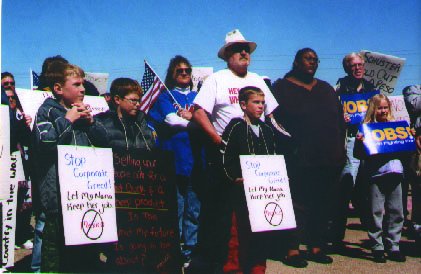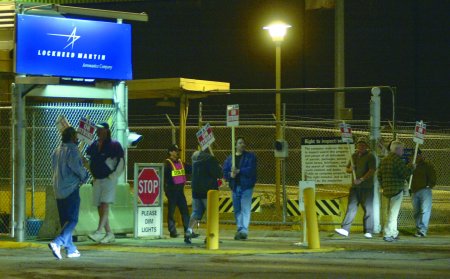|
|
"The State of Kansas is under attack," said Dick Schneider, IAM Aerospace Coordinator. "Since 1998, 10,000 workers in Wichita alone have lost their jobs, and not just to a weak economy. Airplane makers and manufacturers are systematically and permanently transferring assembly work to Mexico, Indonesia and China," he said. The adverse effects go beyond workers and their families at the Big Four airplane makers. "It means cops, firemen, waitresses and schoolteachers will also be laid off as the inevitable domino effect takes its toll," said Schneider. 'Grow Kansas' follows in the footsteps of a successful campaign in Connecticut, where Machinists led a coalition to keep Pratt & Whitney from moving jobs out of state. "These are jobs worth fighting for," said Schneider. "We refuse to sit back and watch these companies trade away Kansas' economic future."
In 2002, the median pay for chief executives at U.S. defense firms increased by 79 percent. Leading the way is Lockheed Martin CEO Vance Coffman, who took home a whopping $25.3 million in total compensation ― more than double the already astronomical $11.3 million average annual pay for a defense industry CEO. An eye-opening survey of 37 defense companies found their average annual compensation is nearly 600 times the $19,585 yearly salary for a U.S. Army private serving in combat. To equal the annual pay of Lockheed’s CEO, a soldier would need to spend 1,293 years in a combat zone. The study by United
for a Fair Economy, a nonprofit watchdog group, also examined
campaign contributions by the largest defense contractors and found a
strong connection between campaign contributions and the value of
contracts awarded to that company.
|


